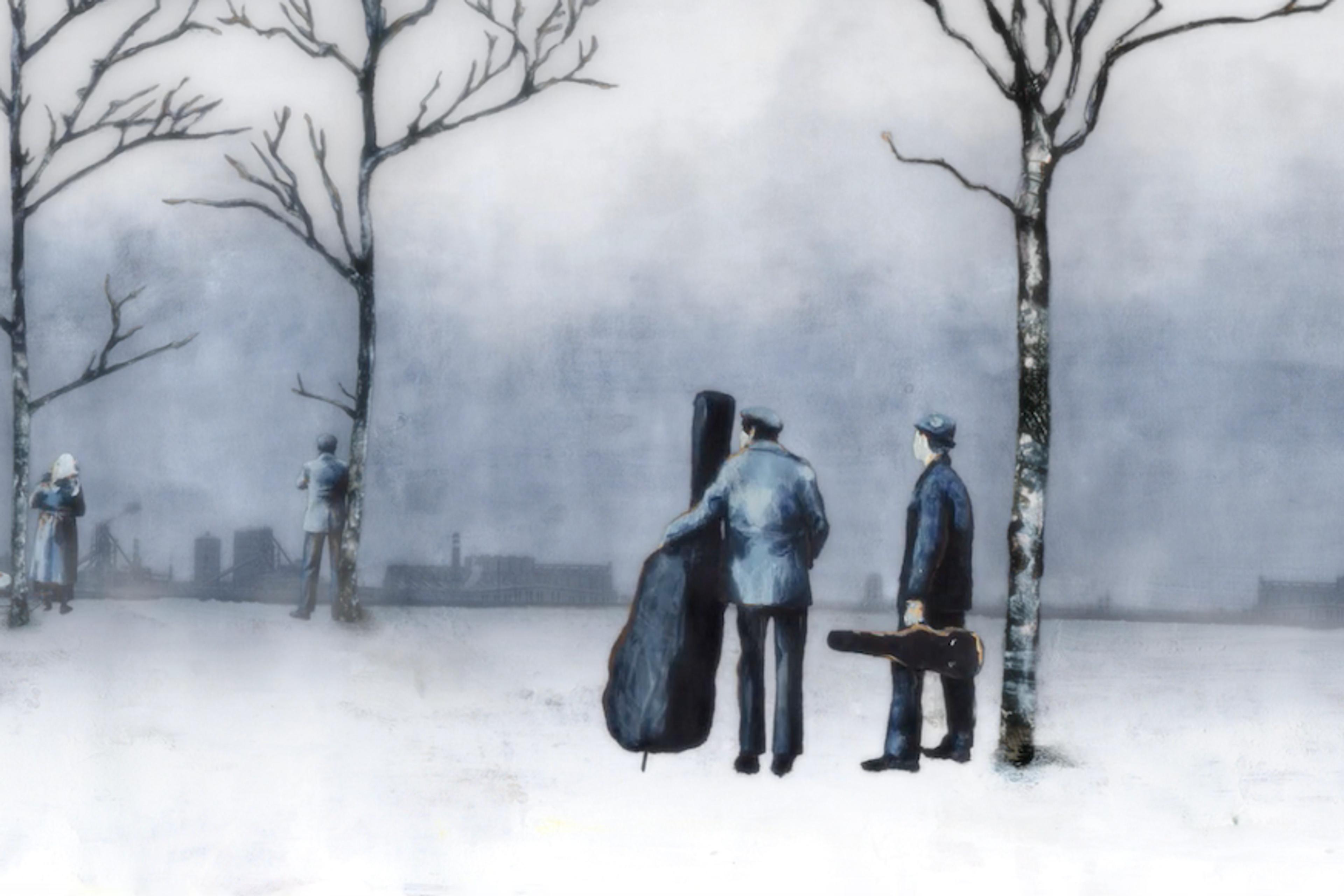A woman stands in front of a window looking out at a dark expanse. The world outside is harsh and elemental. Wind flutters the curtains as a ray of light brightens the tip of her nose. But her mind is elsewhere. In the hazy, dreamlike terrain of the animated short Étreintes (or Embraced), two narratives unfold in tandem – one in the present day, and another projected into the sky from a memory deep in the fabric of the woman’s mind. As these two worlds intertwine, the storm brewing outside becomes a window into the woman’s passionate time with a past lover.
In the present, a man appears fleetingly behind the woman with a steaming cup of coffee. With an unsmiling expression, he retreats into the shadows, unable to access her daydream. In the clouds, two silhouettes dance in synchrony. Their lips and limbs embrace, and their fingers trace the contours of one another. In the absence of dialogue, their body language expresses the intensity of their relationship. A delicate and haunting original score builds pathos, with the steady patter of piano mirroring the falling rain in this world of eternal dusk. Through the repeated motifs of clouds, cups, bodies, windows and hands, the French filmmaker Justine Vuylsteker connects the two narratives to build a meditation on longing, on being caught between two worlds, and on love’s stormy landscapes.
Interwoven with the film’s narrative is the story behind its distinctive monochrome look. Artfully rendered using pinscreen animation, a process that uses thousands of small pins to cast shadows and generate depth, the resulting aesthetic perfectly sets the wistful mood and tone. Beautiful in its play of light and dark, the pinscreen’s fading, grainy lines accentuate the film’s focus on the dissolving texture of memories. Indeed, with only three full-sized operating pinscreen machines now in the world, the technique itself may soon fade into the fog of the past.
The seeds of the film sprung from Vuylsteker’s interest in the instrument, and in the husband-and-wife team who invented it in the 1930s. In an interview with the online animation magazine Skwigly, she details how she came to see the pinscreen as ‘a testimonial to the love between this couple’, and how echoes of the inventors’ story appear in Étreintes. The movements and expressions show yearning and desire, but it’s the pinscreen’s dramatic and poetic casting of light that gives this simple tale poignance and emotional pull. The result is a stunning union of narrative and form, given another rich layer of depth via the story of its creation.
Written by Olivia Hains







